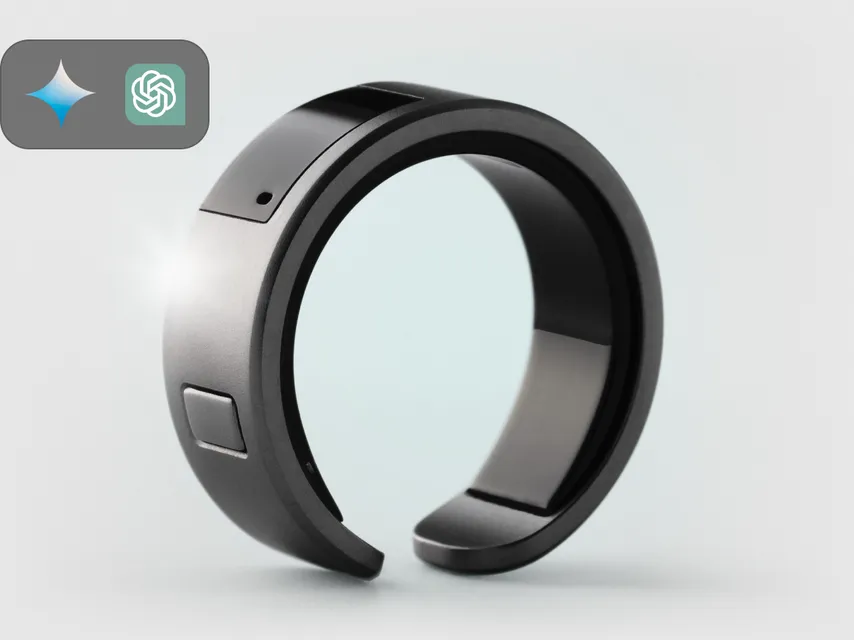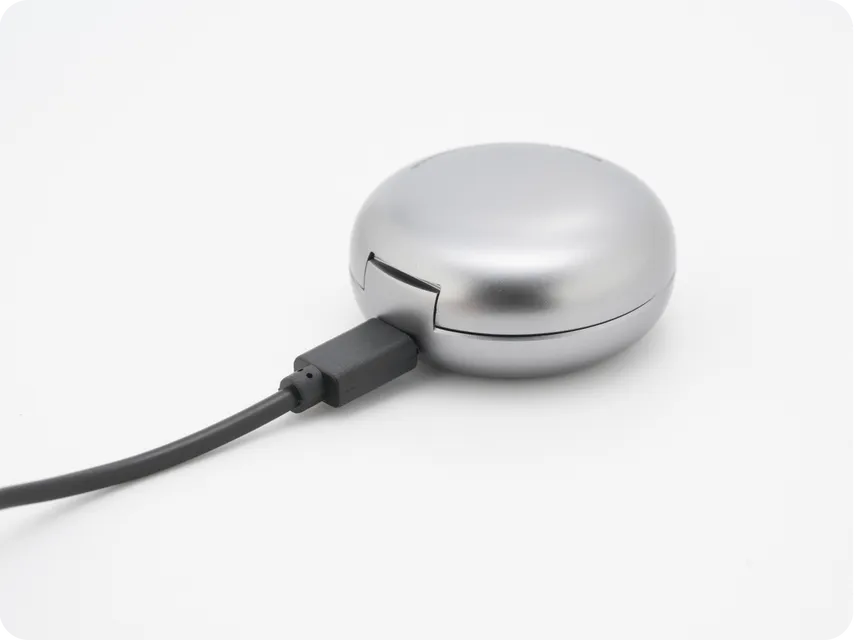Seoul-based VTouch Inc launched a smart wearable ring called ‘Wizpr Ring’. The AI-powered device is an actual ring that you wear on your finger, pull towards your mouth and whisper into it.
The Wizpr Ring (pronounced Wiz-per) works as a personal AI assistant and pairs with a smartphone app, which stores a range of AI tools including ChatGPT, Gemini, Amazon’s Alexa, and others.
The ring comes at a time when the market for wearable devices that are based on multimodal AI is heating up. Several tech firms are racing to integrate AI into smart glasses and other gadgets with front looking cameras, like Humane’s Ai Pin and Rabbit’s R1.

Also read: Major Tech Rivals Race to Launch Multimodal AI Wearables
Wizpr Ring: How does it work?
According VTouch, Wizpr Ring is designed to respond to close-range speech. The device unlocks instantly when brought close to your mouth, enabling immediate voice input without wake words like ‘Okay, Google’ or ‘Hey, Alexa’, to use the firm’s witty example.
You won’t have to press any buttons, the company says, because the ring is activated by a built-in proximity sensor that turns off the microphone automatically when you move the ring away from your mouth. By contrast, Google and Alexa always have the mic on.
VTouch claims Wizpr Ring is noise-resistant, isolating the user’s voice from background sounds and can “pick up even the softest of whispers.” This way, it says, the ring will not hear conversations around you and confuse them with a command.
“AI-based conversational computing is expected to be the next big thing that goes beyond the limitations of ‘graphical user interfaces’ such as PCs and smartphones,” VTouch co-founder and CEO SJ Kim, said in a statement shared with MetaNews.
“With Wizpr Ring, we aim to realize a conversational computing environment where you can interact with AI by talking to it with your voice anytime, anywhere, without having to look at a screen.”
In a demonstration video, Kim says the Wizpr Ring is inspired by the movie ‘Her,’ and the goal is “to make the use of AI in daily life easy and natural while protecting users’ privacy.”
The ring itself does not store personal data, nor does it upload private information to the cloud, the company said. User data is kept on their smartphones, it adds, “so if you lose your ring, your information remains safe and secure.”
What can you do with the ring?
People can use their Wizpr Rings to summon tools like ChatGPT or Gemini and it will bring up the chatbot you need based on your description. The AI’s response can be heard via a pair of wireless earphones, which are connected to the ring by Bluetooth.
The ring pairs with its Wizpr smartphone app by Bluetooth. The app, which requires an internet connection, functions as an agency that converts what you say to text and sends the text to AI engines.

Wizpr gives users access to smart home devices and can listen to incoming text messages – without the need to pick up your phone. You can wake the ring by saying “What’s Up” and it will read any new messages to you, as well as provide updates on things like weather, location and calendar dates.
The device can also be used with buttons. To activate SOS mode, press the button on the ring five times and it will send an alert in your location and to your emergency contacts via SMS.
Press the button once and you’ll switch between AIs. To turn on correction mode, make two quick successive presses. The feature lets you check if you’re saying a word correctly and the AI will amend if it is wrong.
AI wearables arms race
Unlike other large language models, which generate output based purely on text prompts, Wizpr Ring uses what CEO SJ Kim calls the contextual agent model. The model understands context and “can perform actions based on real-world information preferences.”
The ring has support for six languages – English, Spanish, French, Korean, German, and Japanese. It weighs four grams and is available in either black or silver. Sizes range from six to 13.
Wizpr comes with a charging case and battery life is expected to last more than 60 hours with regular use and 10 hours with continuous voice connection. The device is available for sale on Kickstarter at an early bird price of $139, rising to $199 later.

VTouch’s ring is coming to a market that has seen increased competition for wearable AI. Companies like Microsoft, Google, OpenAI, and others are racing to integrate multimodal AI to build smart glasses and other wearable devices with front-looking cameras.
Multimodal AI is a powerful form of the technology that combines many sources of data to go beyond simple generated text replies. It can understand text, images, audio, video, speech, and even hand gestures.
OpenAI and Microsoft are working with AI startup Humane, which launched a device called the Ai Pin that uses a laser projection system to display text and images on a user’s hand. The pin is due to start shipping later this month, alongside rival Rabbit’s R1.









 and then
and then